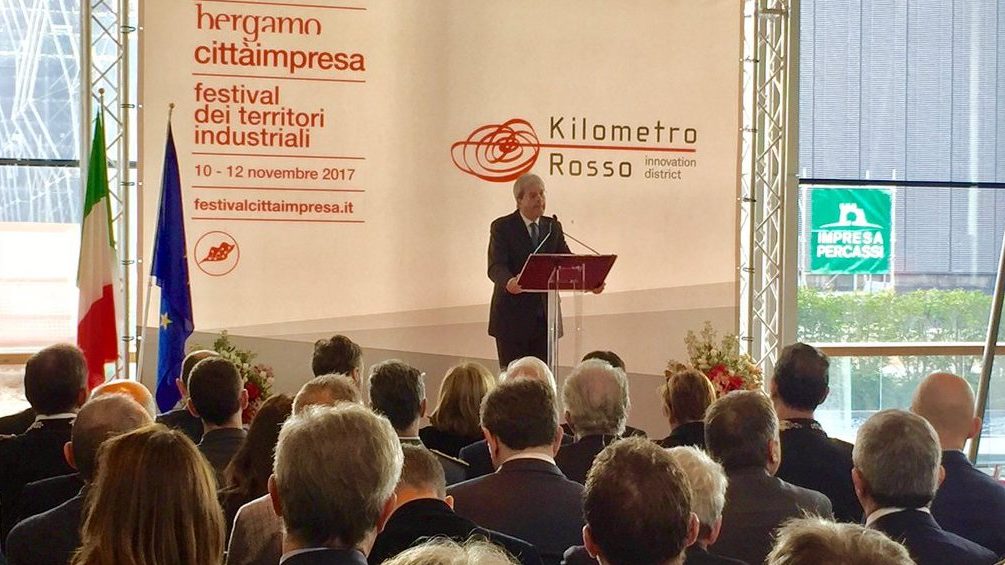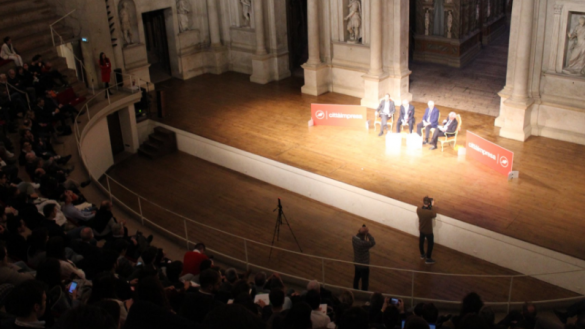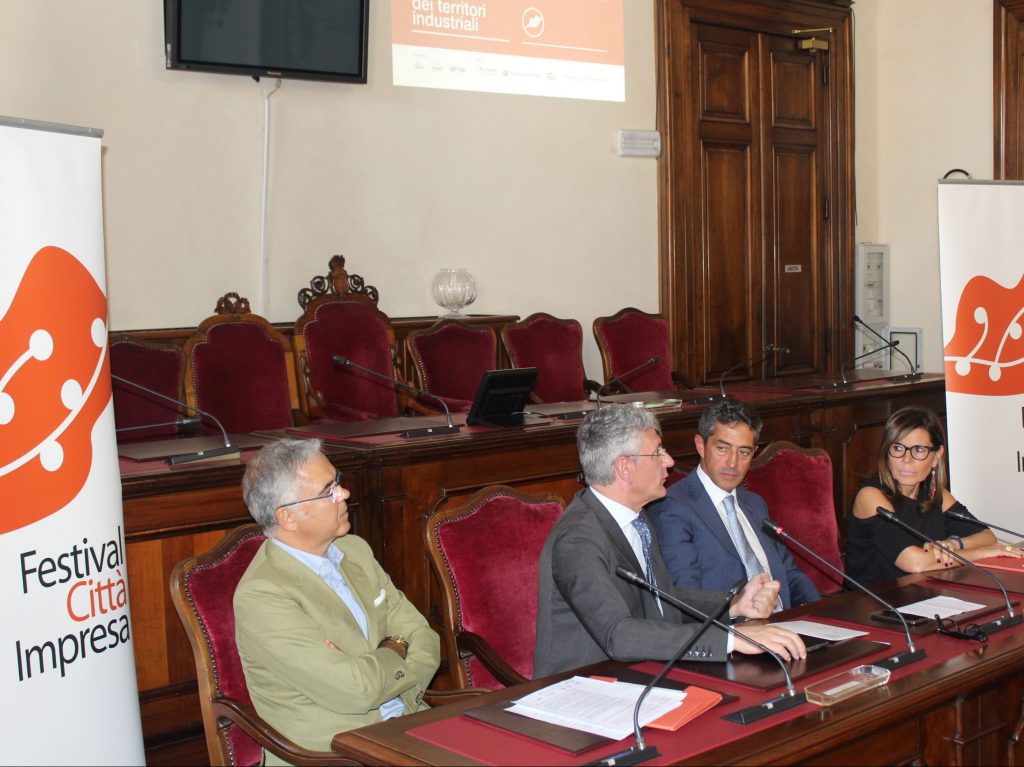Crowded all 22 meetings of the three-day event; protagonists are young people and the business world. Closing at Kilometro Rosso with Alberto Bombassei, Maurizio Del Conte and Andrea Moltrasio and visits to Brembo, Italcementi, Mario Negri Institute
It was an intense and packed three days, marked by moments of close confrontation on all the main themes of the future of Italian business and manufacturing territories that mark the entire axis of the A4, the great corridor of the industrial North that runs from Turin to Trieste and that sees Bergamo and Vicenza – the cities hosting the Festival Città Impresa – as symbolic places of Italian recovery. Thousands of young people, entrepreneurs, professionals, and representatives from the world of education and academia went over the entire agenda of issues that the country must address to become increasingly competitive internationally with top-level speakers. “The most valuable resource is young people,” stressed Alberto Bombassei, patron of Brembo, at the closing event held today at Kilometro Rosso, the innovation hub that also symbolically marks the industrial axis of the country’s north. The main protagonists of the fall edition of the Festival Città Impresa were Prime Minister Paolo Gentiloni, who among other things stressed that the autonomy demanded by these territories is yes legitimate, but it cannot take the form of localisms and small homelands. And that this large industrial area must increasingly stand in a European logic was emphasized even more by European Parliament President Antonio Tajani and Business Europe President Emma Marcegaglia, who spoke on the opening day of the event.
But it was the issues of training and labor that served as the thematic center of gravity for the entire event, right from Friday morning’s talk by Francesco Giavazzi, which was then declined with comparisons featuring both the training managers of the province of Bergamo-one of the most advanced nationwide in the field of technical training-that hosted the event, and in the speeches of such prominent figures as Salvatore Majorana , director of Kilometro Rosso, Stefano Micelli and Bergamo Mayor Giorgio Gori; and again Marco Bettiol, Tiziano Treu, Maurizio Del Conte, Francesco Seghezzi, Michele Tiraboschi, Marco Leonardi.
The Festival was also an opportunity to broaden our gaze on socio-economic issues of global relevance, such as the theme of new inequalities put forth by Festival director Dario Di Vico with his new book Nel paese dei disuguali (Egea), which saw a sometimes harsh confrontation between the vision of Stefano Parisi, founder of Energie per l’Italia, and that of Minister Maurizio Martina. A bitter confrontation also took place between Vincenzo Visco, former finance minister, and Franco Debenedetti on the issue of taxes; greater convergences were recorded on 4.0 issues for example between the University of Padua and Bergamo’s technology transfer pro-chancellors – Sergio Cavalieri and Fabrizio Dughiero – and Bergamo Sviluppo president Cristiano Arrigoni, and on Fabrizio Onida ‘s book on the issues of L’industria intelligente (Università Bocconi Editore) where Gianluigi Carlo Viscardi, president of Cluster Tecnologico Nazionale Fabbrica Intelligente (National Technology Cluster Intelligent Factory), also spoke.
Instead, the theme of social networks, with all their implications, was the focus of the meeting between Corriere della Sera editor Luciano Fontana and LUISS University of Rome rector Paola Severino, while as interesting as it was exciting was the special Saturday evening with Stefano Massini, Ferruccio de Bortoli and Victor Massiah held in the splendid setting of the Aula Magna of the University of Bergamo, where rector Remo Morzenti Pellegrini brought greetings. Bergamo was thus the venue for an event that aimed to discuss major national issues, but it was also an opportunity to highlight some of the local experiences with a strong national value. For example, Aldo Bonomi presented AASter research on “Bergamo Smart Land” promoted by Province President Matteo Rossi; a theme also taken up in the comparison on urban regeneration paths along infrastructure routes. Much appreciated, on the other hand, by Giuseppe Bertagna of the University of Bergamo and Patrizia Graziani director of the Regional School Office for Lombardy on the topics of vocational training. First fall edition of the Festival fully successful, according to the organizers. With the goal, for the next edition, to widen the network of collaboration between territories and between subjects that can contribute to the development of moments of confrontation on the future of our economy.





